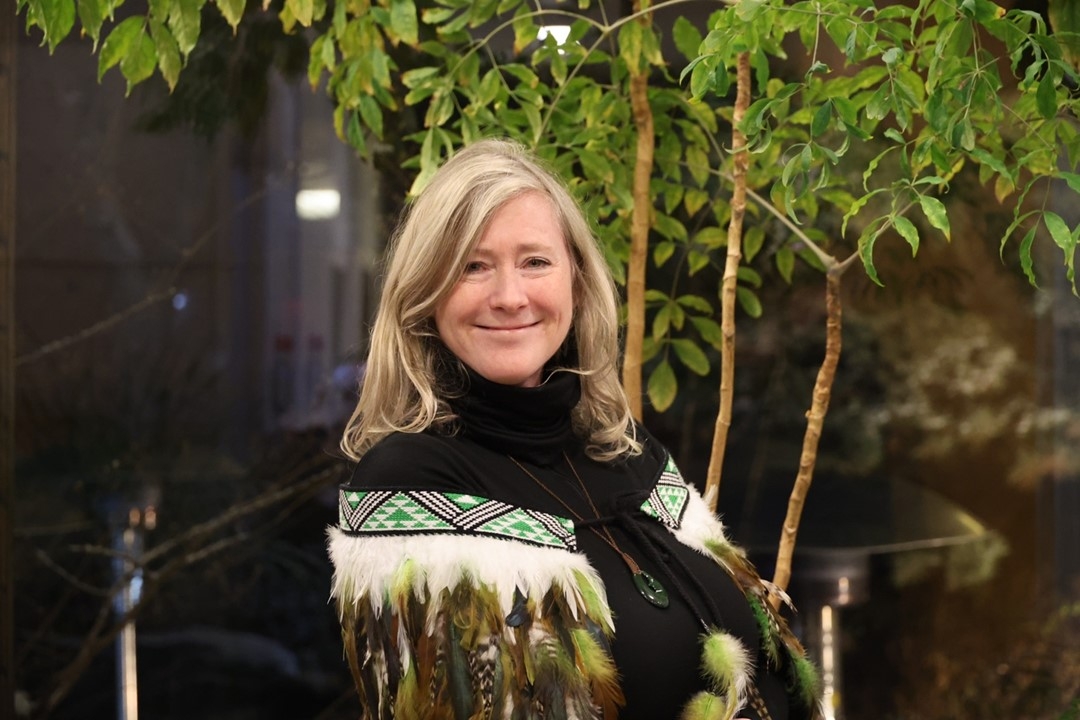
Q. What challenges have you faced as a female ambassador, and how have you overcome them? Do you believe female representation in diplomacy and politics has improved globally?
I’m fortunate to represent New Zealand, a country with a strong tradition of female leadership and a commitment to gender equality. Nevertheless, I believe there remain challenges particular to women in fields traditionally dominated by men. It takes time for change to come through!
In my case, I believe I have seen changes throughout my career as women have increasingly been accepted as leaders not just in "soft" positions but equally in very strategic positions, including on hot geopolitical issues.
In New Zealand, we have had three female Prime Ministers, and each one has led to a greater acceptance of the full range of work that men and women can do equally well - including at the same time as either parent juggles childcare responsibilities. Now, I am proud to say that half of New Zealand's diplomatic missions are led by women. Mentorship and support networks have been key for me in overcoming these obstacles.
Q. What policies or social campaigns have been promoted in your country to improve women’s rights and leadership?
In New Zealand the Equal Pay Act (1972) and ongoing pay equity initiatives aim to close the gender pay gap, ensuring fair wages for women. To support leadership opportunities, programmes like the Women in Governance Programme encourage female representation in senior roles across business and government.
Social campaigns such as "It's Not OK" address domestic violence and promote safer communities, while initiatives supporting women in STEM and traditionally male-dominated fields help break barriers. Strong female representation in politics, business, and diplomacy now help to provide role models and shows that people of all genders are equally capable in nearly all professions.
Q. What advice would you give to young women aspiring to leadership positions, especially in international relations?
I would tell them that confidence, resilience, and proactiveness are essential. They can achieve great things in any arena, they just need to believe in themselves! More seriously, for any young person, diplomacy and global affairs can be demanding, but they are also very exciting and give you a seat at the table to watch history unfold.
Perseverance and a willingness to build expertise—through education, language skills, or international experience—are helpful attributes. Challenges can be opportunities for growth as much as obstacles. Reach out to people you trust, as networking and mentorship are invaluable in navigating complex situations and to gain valuable insights. Most importantly, believe in the value of your perspective, as diversity in leadership truly leads to better decision-making in any organization.
Q. There are growing concerns that AI gender bias reflects both technological limitations and deep-rooted societal prejudices. Despite economic and technological advancements, what measures do you believe are necessary to bridge the gender gap both online and offline?
This is a difficult one. The technology is so new, and the consequences of what it has to offer, but also what unforeseen side effects might arise, are still being discovered. I think probably addressing AI gender bias will require some technological improvements, but mostly it will need further societal change. AI is a tool after all, and we will shape it according to our own values and biases. I like the idea of deliberately ensuring diversity in data collection in particular.
This is important in other spheres too, for example medical research. The principle is the same in each case - the data on which we base our search for solutions to problems should reflect all of the people it is designed to help, not just some of them.
New Zealand already has some amazing champions in the AI space, but women currently only make up 26 percent of the sector, so we are working hard on encouraging more women to get involved in this field, through policies, outreach campaigns and education opportunities. Achieving true gender equality will require collaboration between everybody - governments, tech companies, and society as a whole.
For a special feature to celebrate International Women's Day on March 8th, The Korea Herald met with nine female diplomatic envoys in Seoul to hear their opinions on the persistance of gender inequality, AI-driven gender biases and how women's empowerment can be fully realized. -- Ed.
koreadherald@heradcorp.com




